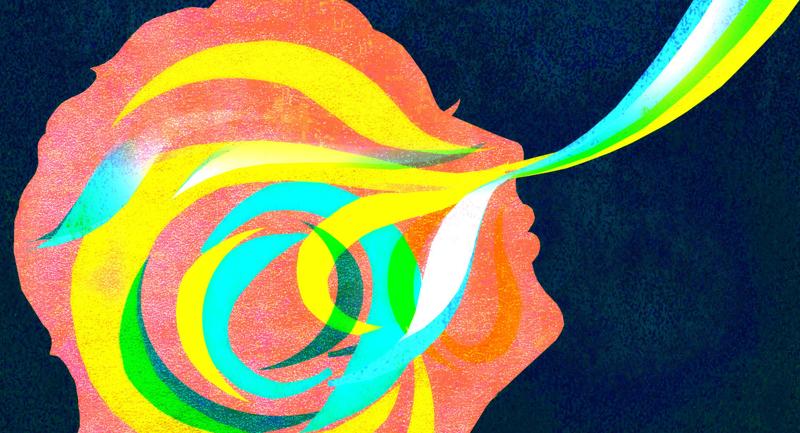When I was a preservice teacher 20 years ago, I was excited to begin my apprenticeship in a program for students who had fallen behind in credits and struggled to stay engaged in the traditional classroom experience. My cooperating teacher, Linda, was charismatic, hardworking, and strategic. She always knew how to get an extra ream of paper, obtain a new table for the back of the classroom, and reach even the most reluctant learner.
The day before school started, Linda looked at me and said, "Even though we're supposed to wait a few weeks before you teach, it would be a shame to squander the magic of the first day. I think you should teach it." The first day turned into three weeks and we agreed that I should just keep going. Linda stood at the back of the room, chiming in when I needed support or inevitably made big mistakes I didn't know how to get out of.
Those 14 weeks as a full-time student teacher were my ultimate instructor, laying the foundation for my teaching career to come. That's why school and district leaders may be concerned about the next wave of first-year teachers and the experiences they've had as their field work was cut short or shifted to remote learning in response to the COVID-19 pandemic. Traditional preservice experiences—observing a cooperating teacher's process, building relationships with students and faculty, practicing classroom management, or working out the kinks in a lesson by reteaching it multiple times—have been transformed or eliminated by school closures.
Student teaching helps preservice teachers examine how theory plays out in practice and provides lessons one can't learn from a textbook—like how to make friends with the school secretary, schedule your bathroom breaks, take attendance, and actually plan during your planning periods (although, to be honest, some of these we're all still working on!).

We still don't know all the ways the COVID-19 pandemic will alter the teaching and learning landscape, but we can use it as a catalyst to be even more proactive about supporting first-year teachers in the coming school year. New teachers will need the following:
A network of support. School and district leaders may want to go above and beyond the typical get-to-know-you activities that take place at the beginning of the school year. Especially after long periods of social distancing, it will be more important than ever to help new teachers find their way in the school community. Consider establishing a "seminar" for new teachers or a support group that provides a space to reflect, share experiences, and receive guidance from a school leader (like an assistant principal, lead teacher, or union representative).
Increased mentoring. Most schools provide some level of mentoring for new teachers, but in response to the disruption in preservice training, we may want to provide more robust opportunities to connect with an experienced colleague. Whether it's an official mentoring relationship or a more informal buddy system, new teachers are going to need intensive and ongoing support from someone they grow to trust.
Feedback and collaboration. Working side-by-side with a cooperating teacher and a university field work supervisor are dynamic opportunities for preservice teachers to engage in the reflective processes that help them find their identity as a teacher. Leaders can provide similar outlets for new teachers by organizing nonevaluative observations and dedicated time for co-planning with colleagues in the classroom, grade level, or content area.
An Asset-Based Approach
There's no doubt that preservice teachers and their future administrators are concerned about how COVID-19 has disrupted their training to enter the field. But it's also true that living through months of quarantine has created new learning in personal and professional realms, which may in some ways be more of an asset than a liability. First-year teachers bring these traits:
A view of both sides. Preservice teachers have been both a student and a teacher during the pandemic. They've experienced the rush to transition learning to online options for the university courses they're finishing up, and they've also worked with their cooperating teachers to develop online or remote instruction for their own students. Our early experiences as educators begin to inform our philosophy and our pedagogy. Some preservice teachers have reported learning more about the importance of formative assessment and analyzing short pieces of student work daily. "I wouldn't have understood the importance of digging into their homework," said one preservice teacher I know. "In person, I was focusing on their notetaking and participation rather than reading their answers deeply." Because preservice teachers have had to be adaptable with methods from the beginning, they are likely to be better suited to integrating technology with in-person teaching, which may lend itself well to blended learning and even extended remote learning if necessary.
Character in crisis. Preservice teachers have had a unique experience of seeing students in their home environments and viscerally understand the importance of educating from a whole child perspective. "We can't assume what students' lives are like based on their performance in class," explained another preservice teacher I work with. "That's something that wouldn't have occurred to me before."
Preservice teachers saw their training time drastically cut short and their entire way of working turned upside down, and they now face the daunting prospect of a job search during uncertain times. It's likely that those who stick with teaching after COVID-19 do so because they have seen teaching in its most challenging time and their takeaway was, "Challenge accepted."
We will all emerge from this experience permanently changed. But as my cooperating teacher said, there really isn't anything in the world like teaching your first day on the first day of school. As preservice teachers begin their first days, they bring with them a few challenges that may require a bit of extra support or extended training—but that's nothing compared to the resilience, creativity, and commitment that will be a defining characteristic for 2020 graduates at every level.





